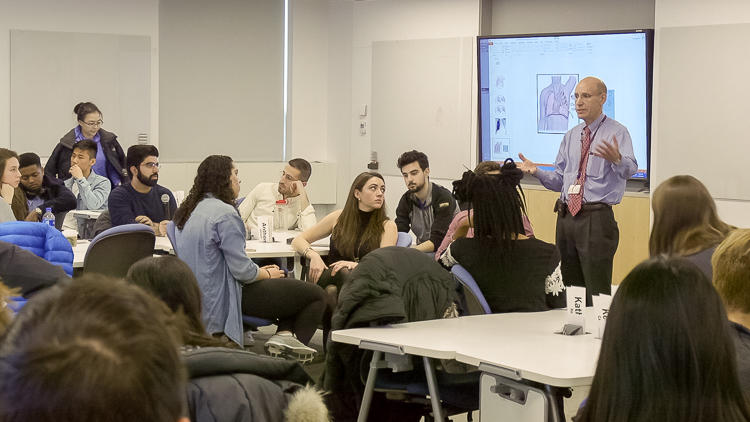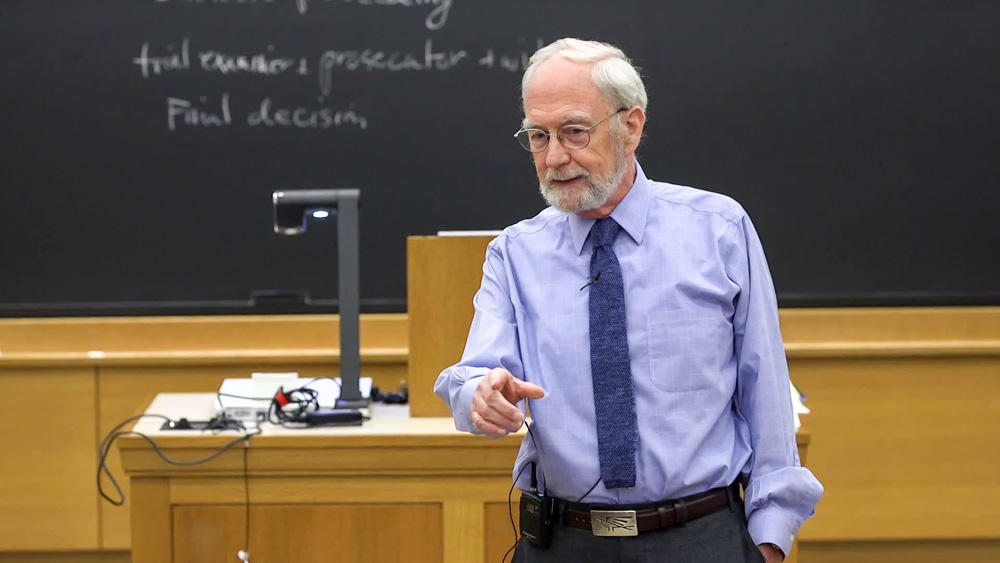Questions have the power to ignite or short-circuit deeper understanding. While the thoughtfully constructed question might take a discussion to new heights, another can stop it in its tracks. What sorts of questions get students thinking more deeply? How can these questions be planned in advance or developed “on the go”? In this video, Todd Rakoff uses a questioning strategy inspired by Socratic dialogue to probe for deeper student thinking.
Asking questions that probe for deeper understanding
Instructor
Todd Rakoff, Byrne Professor of Administrative Law
Student Group
Graduate
School
Harvard Law School
Course
Legislation & Regulation
Group Size
80 students
Additional Details
First-year requisite
- Listen to student contributions carefully during class discussions, and respond with questions rather than comments
- Have an outcome for your lesson in mind. Know where you want your students to land so you can flexibly craft questions "on the go" to get them there.
- Ask questions purposefully (e.g., to clarify student reasoning, to provide evidence for claims, to encourage students to draw broader inferences)
- Ensure students have sufficient background knowledge of the issues or topic at hand. This can be achieved through pre-reading or establishing the facts of the case at the outset of a discussion.
- The Socratic method makes course material more relevant and dynamic for students, trains students to be more “practice ready,” and creates more inclusive and inviting classrooms (Abrams, 2015)
- Students exposed to Socratic questioning in undergraduate physics classrooms achieve higher average pre-to-posttest learning gains on a standardized test than students exposed to more traditional, passive pedagogies (Hake, 2012)
- A series of well-planned guided questions can facilitate the development of critical thinking and enable students to gain deeper conceptual understanding (Peterson, 2009)
- An article from College Teaching outlines various Socratic dialogue-based practices that keep students engaged in classroom discussions
- The Teaching Center at Washington University in St. Louis provides a helpful tip sheet on “Asking Questions to Improve Learning”
- In this video, Professor Rob Reich from Stanford University offers various tips for using the Socratic method in college classrooms




